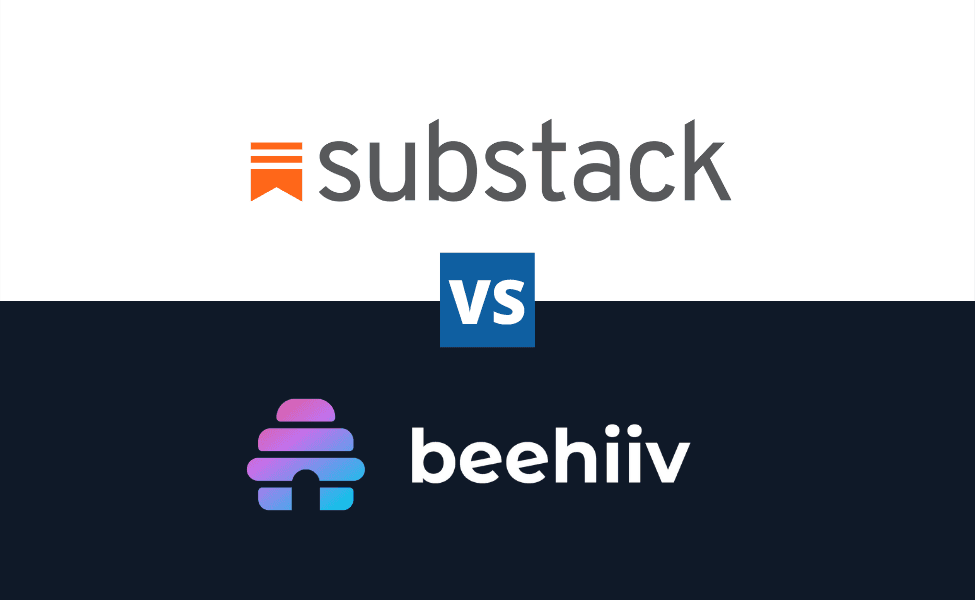

Choosing the right newsletter tool can make or break your email marketing success. Let’s learn more about this topic below with Slice Master as we compare three popular options: Beehiiv, Substack, and ConvertKit. Each platform offers unique features and capabilities for creators and businesses alike.
Before diving into the detailed comparison, it’s essential to understand the core functionalities of each platform. Beehiiv, Substack, and ConvertKit are all designed to help creators and businesses build and manage their email newsletters, but they each have their own strengths and target audiences.
Beehiiv is a relatively new player in the newsletter space, focusing on providing a comprehensive suite of tools for creators and businesses. It offers a range of features designed to help users grow their audience and monetize their content effectively.
Substack, on the other hand, has gained significant popularity among writers and journalists. It’s known for its simple interface and built-in payment system, making it easy for creators to start paid newsletters and build a loyal subscriber base.
ConvertKit is a more established email marketing platform that caters to creators of all types. It offers advanced automation features and integrations, making it a versatile choice for those looking to create complex email marketing campaigns.
When it comes to features, each platform has its own unique offerings. Beehiiv stands out with its advanced analytics and AI-powered tools, which can help creators optimize their content and grow their audience more effectively.
Substack’s strength lies in its simplicity and focus on written content. It provides a clean, distraction-free writing experience and makes it easy for writers to monetize their newsletters through subscriptions.
ConvertKit offers a robust set of automation tools, allowing users to create complex email sequences and segment their audience based on various criteria. This makes it ideal for creators who want to provide a highly personalized experience to their subscribers.
All three platforms offer essential features like customizable templates, subscriber management, and basic analytics. However, the depth and complexity of these features vary across the platforms.
The user interface can significantly impact your experience with a newsletter tool. Beehiiv offers a modern, intuitive interface that’s easy to navigate. Its dashboard provides quick access to key metrics and features, making it simple to manage your newsletter.
Substack prides itself on its minimalist interface, which is particularly appealing to writers who want to focus on creating content without distractions. The platform’s simplicity makes it easy for even non-technical users to get started quickly.
ConvertKit’s interface is more complex due to its advanced features, but it remains relatively user-friendly. It offers a visual automation builder that makes it easier to create complex email sequences and workflows.
Pricing is a crucial factor when choosing a newsletter tool. Beehiiv offers a free plan with basic features, with paid plans starting at $49 per month. These paid plans unlock additional features like advanced analytics and AI-powered tools.
Substack’s pricing model is unique. It’s free to use, but the platform takes a 10% cut of subscription revenue. This model can be attractive for creators just starting out, as there’s no upfront cost.
ConvertKit offers a free plan for up to 1,000 subscribers, with paid plans starting at $29 per month. The paid plans offer access to all features, with pricing increasing based on the number of subscribers.
When it comes to monetization, all three platforms support paid newsletters. However, Substack and Beehiiv have more built-in tools for managing subscriptions and payments, while ConvertKit requires integration with third-party services for advanced monetization features.
Growing your audience is crucial for newsletter success. Beehiiv offers several tools to help with this, including SEO optimization features, social media integrations, and referral programs. These tools can help creators expand their reach and attract new subscribers.
Substack provides a discovery platform where readers can find new newsletters to subscribe to. This can be a powerful tool for creators to gain exposure to new audiences. The platform also offers social sharing features and the ability to create a web version of your newsletter.
ConvertKit focuses on engagement tools, offering features like landing pages, sign-up forms, and automated email sequences. These tools can help creators convert visitors into subscribers and keep them engaged over time.
All three platforms offer some form of analytics to help you understand your audience and track your growth. However, Beehiiv’s analytics are particularly robust, offering detailed insights into subscriber behavior and content performance.
Email deliverability is a critical factor in the success of your newsletter. Beehiiv uses advanced technology to ensure high deliverability rates and protect against spam filters. They also provide tools to help you maintain a clean subscriber list.
Substack handles deliverability on behalf of its users, leveraging its reputation to ensure emails reach subscribers’ inboxes. However, users have less control over the technical aspects of email delivery.
ConvertKit is known for its excellent deliverability rates. They provide users with tools to maintain list hygiene and offer guidance on best practices to avoid spam filters. Their team also actively monitors deliverability issues and works to resolve them quickly.
The ability to integrate with other tools can greatly enhance the functionality of your newsletter platform. Beehiiv offers a growing number of integrations, including popular analytics tools and social media platforms. They also provide an API for custom integrations.
Substack’s integration options are more limited, focusing primarily on social media sharing and embedding. This aligns with their focus on simplicity and ease of use for writers.
ConvertKit shines in this area, offering a wide range of integrations with other marketing tools, e-commerce platforms, and content management systems. This makes it a versatile choice for creators who use multiple tools in their workflow.
When considering integrations, it’s important to think about your current tech stack and future needs. A platform with robust integration capabilities can save you time and streamline your workflow.
Good customer support can make a big difference, especially when you’re getting started or encountering issues. Beehiiv offers email support for all users, with priority support for paid plans. They also provide a knowledge base and blog with helpful resources.
Substack’s support is primarily through email and their help center. They also have a strong community of writers who often share tips and best practices.
ConvertKit offers email support for all users, with live chat support available on higher-tier plans. They also provide extensive documentation, video tutorials, and webinars to help users make the most of their platform.
Choosing between Beehiiv, Substack, and ConvertKit ultimately depends on your specific needs and goals. If you’re looking for a platform with advanced analytics and AI-powered tools, Beehiiv might be the best choice. Slice Master’s analysis shows that Beehiiv’s features can significantly boost engagement and growth.
For writers focusing primarily on written content and looking for a simple, no-frills platform, Substack could be the ideal option. Its built-in monetization features and discovery platform make it easy to start earning from your writing.
If you need advanced automation capabilities and integrations with other tools, ConvertKit might be the best fit. Its robust feature set makes it suitable for creators with complex email marketing needs.
Consider factors like your budget, technical expertise, and long-term goals when making your decision. It’s also worth taking advantage of free trials or plans to get a hands-on feel for each platform before committing.
Remember that the best tool is the one that helps you consistently create and deliver valuable content to your audience. Focus on your content strategy and audience engagement, and choose the platform that best supports those efforts.
As you grow your newsletter, keep in mind that your needs may change. Be prepared to reassess your choice periodically and switch platforms if necessary. The newsletter landscape is constantly evolving, with new features and tools being introduced regularly.